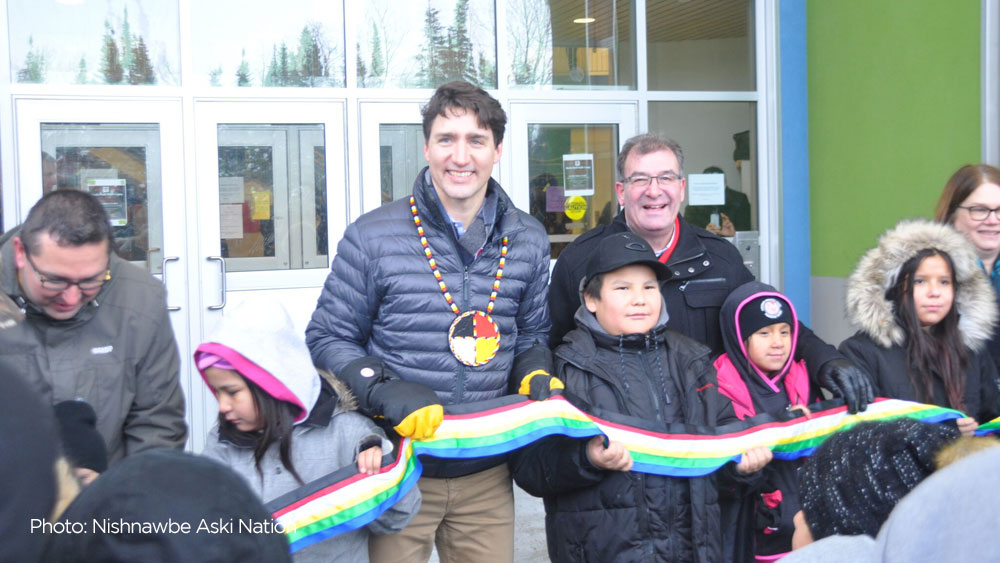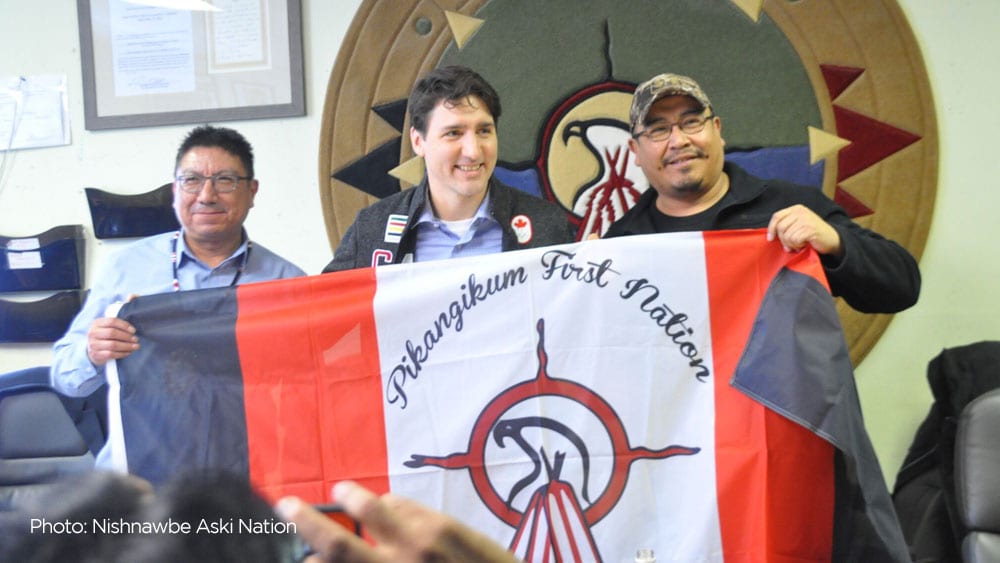PIKANGIKUM, Ont. – Prime Minister Justin Trudeau is visiting a remote northwestern Ontario reserve where the chief says a shortage of housing is still a big problem.
Dean Owen of Pikangikum First Nation says the backlog of homes needing to be built is almost twice as much as it was when he became chief in 2005.
He says there were 1,800 band members at that point and that has grown to 3,100 on the reserve about 500 kilometres northwest of Thunder Bay, Ont.
“We had a shortfall, backlog of homes back then close to 300 homes. Thirteen years later, we’re at 3,100 people on reserve and the backlog has since almost doubled,” Owen said in an interview Friday before Trudeau’s arrival.
Owen said nine and 10 people often share one of the reserve’s existing homes and are forced to sleep in shifts.

Some new homes and a school have been built, but the chief added that construction on the reserve is hampered by a lack of electrical capacity.
“The problem actually has to do with the size of the electrification that we have running diesel generators,” he said. “We maxed that out pretty much two years ago.”
The federal government last summer announced up to $60 million in funding to connect Pikangikum to Ontario’s power grid. Owen said that should help.
“That will definitely allow for more housing, more infrastructure. We’re pretty much in dire need for living like anyone else in Canada or Ontario – water and sewer in every home.”

The prime minister started his visit with a meeting at the band office. He told council members, Grand Chief Alvin Fiddler of the Nishnawbe Aski Nation and others that he was in the community primarily to listen to concerns and see what the government can do to help.
Nishnawbe Aski Nation represents about 50 First Nations in northern Ontario.
“We see a lot of challenging things in the news from time to time about difficulties faced by people in this community,” Trudeau said. “But … one of the things I’ve been excited about … is that there is a lot of work being done and a lot of good stories as well that we are working to build.”
Pikangikum faces challenges besides substandard housing. A boil-water advisory has lasted more than a decade on parts of the reserve and suicide remains prevalent.
In 2016, six adults and three children under the age of five died in a house fire.
Regional chief Isadore Day said at the time that conditions on Pikangikum required a direct and immediate response. Day said the reserve was typical of First Nations living in what he called Third-World conditions.
Trudeau was to meet with students at Pikangikum’s recently built school later in the day.









